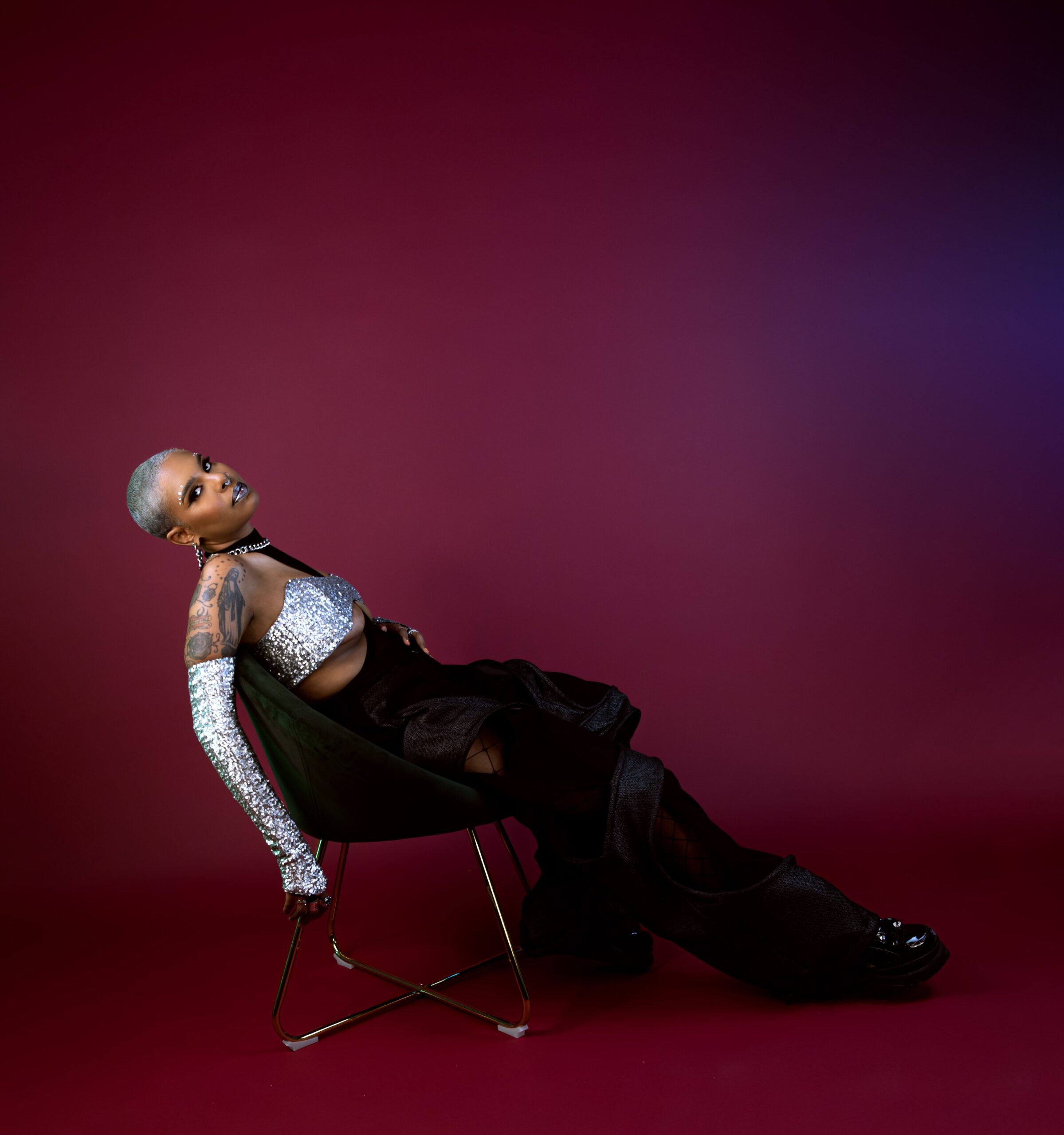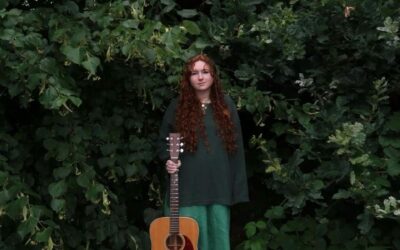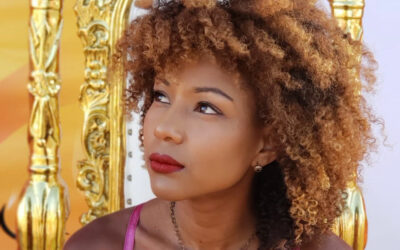This is Catherine Saint Jude Pretorius, stage name – Dope Saint Jude, a 34 year old South African rapper, singer, songwriter and music producer. Having released two albums- ‘resilient’ and ‘higher self’ she has successfully made an impactful presence for herself within the hip-hop genre of South African music scene, captivating audiences with her unique blend of alt-pop, electronica, and soulful vocals. But her journey to success wasn’t without its challenges, especially as a woman navigating the often-male-dominated world of hip-hop.

As a woman in the South African hip hop scene, what were some of the challenges you faced when starting out? How did you overcome them?
It was challenging breaking into the local market, making a living from my music and being taken seriously in general. I overcame this by taking my work seriously and treating it like any 9-5 job. I studied how other artists rolled out their projects. I started a business and registered as such and I sent lots of emails. Over time I was able to break through!
Your music career began with drag king performances. How did that experience influence the development of Dope Saint Jude?
It taught me to be imaginative and bold. It also strongly aligned my work with queer community and that has been a major theme in my music.
Who are some of the female artists or rappers who inspire you and your music?
When I was younger, I was really inspired by Tracy Chapman, Lauren Hill and Alan’s Morissette. More recently, I am a fan of MIA, Santigold, Megan Thee Stallion, Karol Conka, Ashnikko and Kimmortal.
Your music tackles important social issues. How do you decide which themes to explore in your songs?
It happens quite naturally. I write about what I know and what is pressing in my life. So that comes through in the music.
You champion feminist inclusivity in your music. Can you elaborate on what that means to you and how you express it in your work?
I try to make music that is inclusive of the wide spectrum of how people express their womanhood. I try to make music that reflects my general attitude, which is peaceful, respectful and “good vibes”. I am not necessarily trying to make a feminist statement, I just want music that can bring people together.
What role does your perspective as a queer artist play in your music and how does it contribute to the hip hop scene?
My music offers my unique perspective. It adds to the variety of experiences and points of view expressed in hip hop and pop music.
What kind of feedback do you get from your fans about how your music resonates with them?
People often express that my music gives them a sense of belonging.
5678 magazine aims to amplify underrepresented women in music. What advice would you give to other aspiring female artists, especially those who might feel marginalized?
Keep working hard, believing in yourself and showing up. Find community and support.

What are you most excited about for the future of Dope Saint Jude?
Releasing new music, possibly and album.
What is your typical song writing process like?
I start with making the instrumental, and then I typically search my notes for a topic I have been writing about and I will craft a melody based on the instrumental and the topic.
What are your thoughts on the role of music magazines like 5678 in supporting female artists?
It is always positive when people highlight women in the industry.
South Africa has a rich musical history and complex social dynamics. How do you incorporate your South African identity into your music and message?
My music is unique to my experience as South African. While I don’t try to incorporate it in my music, it naturally comes through.
How has your experience as a drag king informed your stage presence and performance style as Dope Saint Jude?
Drag Queens generally set a high bar for performance, so performing on stages alongside them has pushed me to be a better, more engaging stage presence.
Do you see yourself using your platform to advocate for social change beyond music? If so, how?
Not deliberately. I try to be the best version of myself and hope that if I do good, it sets a good example. Where I can offer support to causes I believe in, I will use my platform for that.
Some artists shy away from controversy. Have you encountered any criticism for your outspoken lyrics? If so, how do you handle it?
I have at times experienced some criticism. However, I generally stand by what I say. Unless it’s a moment where I need to reconsider my opinion. I am open to learning new things.
How do you see the role of women and LGBTQ+ artists evolving in the future of hip-hop?
Hopefully we will have more voices in hip hop. The more diversity we have, the more interesting it is for the audience.
There seems to be a thematic thread of growth and self-discovery between your EPs Higher Self& Resilient. Can you elaborate on your personal journey behind these projects?
I have grown an matured along with music. Resilient was a more defiant project, where Higher Self is more settled and peaceful. It is fascinating to listen to each project and reflect on my personal growth. I hope others can relate to it too.
You mentioned overcoming challenges as a woman in the industry. Can you share a specific instance where you had to push back or advocate for yourself, and how it shaped you?
I have advocated for myself in scenarios where artists are often taken advantage of. I have ensured that I take care of myself and am not exploited. This has helped me understand business better and be more assertive.
Who or what are your biggest sources of strength and inspiration, both personally and musically?
Definitely my mother and grandmother. I draw a lot of inspiration from their life stories. I am inspired by women in general who are brave enough to stand up to injustice. Right now, I am inspired by Naledi Pandor.
Is there a female artist, established or upcoming, you would love to collaborate with on a song? Why?
I am a big fan of Kimmortal, her music resonates with men and her lyrics are powerful and profound.
Dope Saint Jude’s journey is one of resilience, creativity, and authenticity. Through her music, and motivational lyrics she continues to break boundaries and inspire others to do the same.




